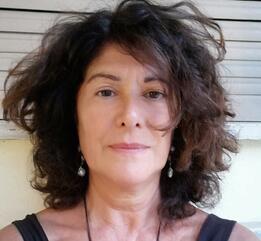Invited Speaker---Prof. Carla Severini

Prof. Carla Severini, Department of Science of Agriculture, Food and Environment (SAFE), University of Foggia, Italy
Biograph: Carla Severini is associate professor in Food Science and Technology at the Department of Science of Agriculture, Food and Environment (SAFE) of University of Foggia (Italy) and PhD in Food Biotechnology (University of Florence). She has achieved the National Scientific Enabling for full professor.
She is specialized in Food Chemistry and Technology (University of Bologna).
Since 1991 she has been teacher in Food Science and Technology at Universities of Udine, Florence, Bologna and Foggia. She was President of the graduation degree in Food Science and Technology of University of Foggia.
Carla Severini has been tutor of 85 second level thesis and 9 PhD students.
Carla Severini is author of over than 200 scientific papers on Food Science and Technology published in scientific journals or presented at international congresses.
From the last 5 years Carla Severini has been PI of 8 research projects.
She is owner of 5 Italian patents.
Speech Title: Emerging technologies for food: 3D printing and customized nutrition
Abstract: 3D printing is the most recent emerging technology in food sector. This technic is already leading to a revolution in many other sectors such as rapid prototyping, regenerative medicine and quick manufacturing of mechanical spare parts, so much so that a 3D Printer has been brought from NASA to the Space with this aim. Indeed, the 3D Printing potentially allows infinite degrees of freedom to build infinite shapes and internal structures. In the food sector, this potentiality has been applied to design specific food formula, with desired nutritional and sensorial properties, targeted to specific people categories or, more precisely, to genetic profile of each of us.
In the last five years many scientists have investigated about several variables which affect the printability of food formulas, with deepening the formula composition, the process conditions of 3D printer, the match between computer design and printed product, the shape of printed products, the textural and microstructural features, etc. However, a great potentiality is specifically attributed to 3D printing for customized nutrition. For instance, a fruit-based snack for children of 3-10 years old has been studied to make it printable in a shape appreciated from children; cereal-based products have been prepared with a high content of proteins, in this case from insects; tailored snacks have been set aimed to women’s health with different ages or for elderly people; 3D food with designed internal structures able to confer desired texture properties, such as for people having mastication or swallowing problems; innovative whole meal for adolescents obtained by printing three different structure from several ingredients (eggs, cereals, vegetables, etc.) in the same dish These case studies will be discussed in my speech.
Keywords: 3D Food Printing, customized nutrition, food formulation, functional food

